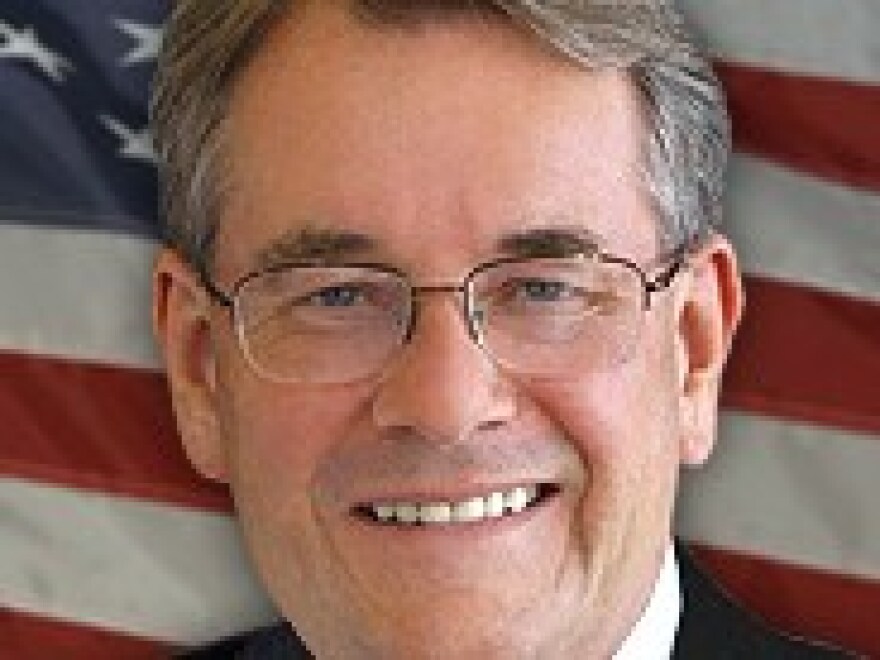All session long, Florida's legislative leaders have frustrated advocates for the poor, as well as much of the business community, by declining to talk about the billions of federal dollars for Medicaid expansion that the state is forgoing.
Now Senate President Don Gaetz has reopened the subject in a letter to Sylvia Burwell, nominee for Secretary of Health & Human Services. If confirmed by the U.S. Senate, she would replace former HHS Secretary Kathleen Sebelius.
In the letter, dated April 17, Gaetz urged Burwell to give states more authority to design their own programs for the Medicaid expansion population, including about 800,000 low-income adults in Florida. Requiring states to expand Medicaid was the only part of the Affordable Care Act that the Supreme Court blocked; it has resulted in millions of low-income Americans being left uninsured while slightly better-off uninsured people receive subsidies to enroll in a plan.
Gaetz said Florida's leaders are aware of the problem and care about the health of those who are left out. However, he suggested, the fault lies in Washington, not Tallahassee.
"Restrictions and requirements associated with Medicaid remain onerous and account, at least in part, for the unwillingness of so many states to accept what otherwise would be a very attractive financial offer," Gaetz wrote.
While some states are still in debate, at last count there were 24 that had turned down the money for Medicaid expansion. Florida's refusal costs the state an estimated $51 billion over 10 years.
He named three topics that would be "starting points for meaningful improvements":
-- Partial or gradual expansion, rather than enrolling all at once. It makes sense that if states can opt in or out of the expansion, they should be able to opt in gradually, he said.
-- Permission for the state to require new enrollees to contribute some money toward the program, within their means. Most of those eligible for the expansion are "able-bodied," and many are employed in low-wage or part-time jobs, he said.
"States should be able to promote personal responsibility and require a rational amount of financial participation that avoids creating disincentives for work," Gaetz wrote.
Medicaid expansion was designed to cover uninsured people and families who had incomes up to 138 percent of the federal poverty level. Those with incomes higher than that but still below 400 percent of the poverty level were to be eligible for subsidies on the federal health exchange.
But after the Supreme Court made the Medicaid expansion provision optional for states, Florida and others opted out. The federal exchange was open to those with incomes at or above the poverty level -- about $11,500 for an individual, but most of those who made less money fell into a gap.
-- Reduction of "bureaucratic barriers that block innovation." It takes months or years for states to get permission from HHS to make changes in Medicaid to spur innovation, he said.
When HHS issues its "permission slip," Gaetz said, it often "waters down bold initiatives."
Gaetz urged Burwell to allow states to try new ideas, while holding states accountable for meeting their goals. He said that the Supreme Court implicitly gave the HHS Secretary the authority to set up different rules for the Medicaid expansion population by calling it a "new program."
Gaetz, R-Niceville, sent a copy of the letter to House Speaker Will Weatherford, R-Wesley Chapel. Weatherford and his lieutenants were responsible for blocking the Senate bill last year that would have used an alternative method to expand Medicaid using the money for private plan premiums. It is unclear whether the Speaker shares Gaetz's opinions.
In another letter, this one to U.S. Sen. Bill Nelson, Gaetz batted away the idea of using local government's tax collections as the local "match" to draw down federal funds. While the Medicaid expansion is 100 percent federally funded through 2016, after that the state must put up a small percentage, increasing until it reaches 10 percent in 2020.


